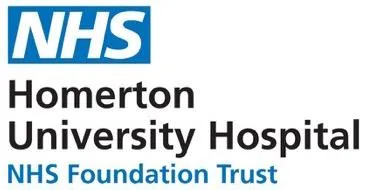The Stepping Stones Study
Evaluating models of care: best practice and care pathways for women who are dependent on drugs and their infants from preconception to 18 months postnatal or The Stepping Stones Study is a longitudinal qualitative study that is funded by the NIHR (NIHR130619).
The study will evaluate the different care models and pathways for pregnant women who use drugs, from early pregnancy to one year after the birth of their baby. The study aims to understand how health and social care providers and services can best meet the needs of women who use drugs and the needs of their babies.
The study will include:
- The creation of an Expert Advisory and Co-production Group
- Reviews of clinical guidelines and existing interventions, and
Longitudinal interviews with women who use drugs throughout their pregnancy and post-birth, and focus group and individual interviews with staff who work with women who use drugs in pregnancy.
The study is led by Dr Polly Radcliffe of King’s College, London and Professor Helen Cheyne of the University of Stirling. It brings together researchers from Kings College London, University of Huddersfield, University of Stirling and Homerton University Hospital Foundation Trust. The team will work with participants across four study sites in England and Scotland and will collaborate with the Expert Advisory and Co-production Group (EACG) of service users and health and social care professionals to establish the best way of providing care for women who use drugs during pregnancy and their infants.
The project team:
Dr Polly Radcliffe, King's College London and Professor Helen Cheyne, University of Stirling
Professor Margaret Maxwell, University of Stirling
Professor Brigid Featherstone, University of Huddersfield
Professor Joanne Neale, King's College London
Dr Narendra Aladangady, Homerton University Hospital
Dr Shirley Lewis, University of Huddersfield
Dr Lynne Gilmour, University of Stirling
Emma Smith, King's College London
Louise Honeybul, University of Stirling
Background
Across the UK, there are various guidelines on the care of pregnant women and mothers who use drugs, and policies which encourage health and social care services to work together to support these women. Currently, we know very little about the sorts of services available and crucially, whether these services adequately support and meet the needs of pregnant women who use drugs, and if they lead to better or worse outcomes for families.
This is important, because pregnant women who use drugs and their infants often have multiple and complex needs and may be involved with different types of support and care services. Women may experience mental health problems and trauma linked to past abuse, poor physical health, drug-related violence and crime, social exclusion, homelessness and poverty.
Additionally, babies born to mothers who use drugs may require treatment for drug withdrawal symptoms, experience health and development problems early on, and are more likely to be taken into care in the first two years of their life. The Stepping Stones study will work to map the types of care available for these women and their infants, and by speaking with pregnant women who use drugs, seek to understand the services and care pathways that are most acceptable and accessible, leading to the best outcomes for families.
Read more about the Scoping Briefing.
What does this study hope to achieve?
By combining a review of clinical guidelines, empirical evidence and qualitative data with feedback from peer reviewers and the EACG, our study aims to establish the best ways of providing care for pregnant women who use drugs and their babies throughout pregnancy and up to 18 months after birth. Interviews with women will help us to understand they feel about going to health services while pregnant, and in what ways these services could be made easier to access.
After reviewing reports and guidelines, and discussing with our co-production group, the study hopes to create a sample best practice model or ‘journey’ that will lead to the best outcomes for women who are dependent on drugs around childbirth.
This research is important because it will inform several areas of policy in the UK and create a participant centred-best practice model for delivering care for women who use drugs during pregnancy. This project also has the potential to help to de-stigmatise care services and create more equal access to integrated maternity care for women who use drugs and their infants.
Our Partners

University of Huddersfield

Homerton University Hospital NHS Foundation Trust

Principal Investigator
Affiliations
Funding
Funding Body: National Institute for Health Research (NIHR)
Amount: £1,123,573.03
Period: October 2021 - April 2024
Contact us
Dr Polly Radcliffe, King's College London
Principal Investigator
Professor Helen Cheyne, University of Stirling
Joint Lead Applicant
Take part in our study
For more information, please visit:
The Stepping Stones Study website



